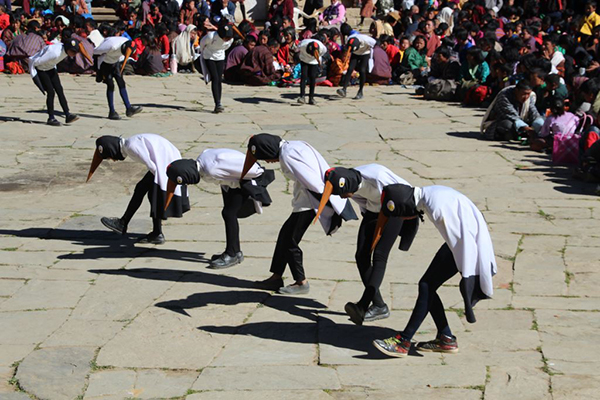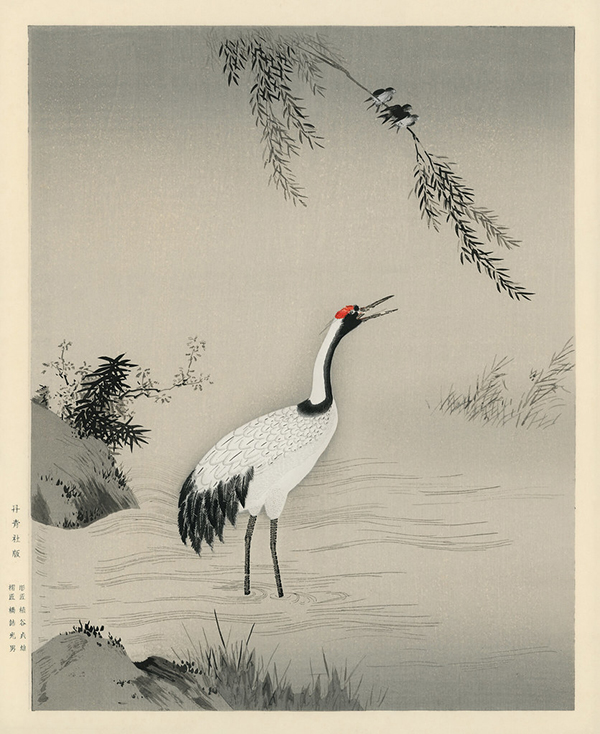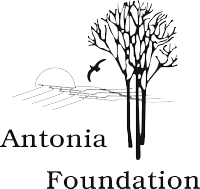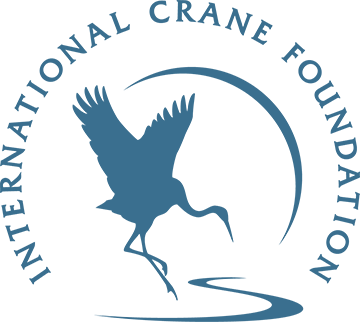
Welcome to Week 3 of Quarantine with Cranes! Over the next few months, the International Crane Foundation’s Education and Outreach Team is recommending activities for you and your loved ones to do from the safety of your home. Some of these activities are picked from our existing online resources, and others are from other organizations that have great, crane-themed activities for kids. This week’s activities focus on cranes and culture. See Week 2 of Quarantine with Cranes here.
Activity Description: Culture is the collective customs and arts of people belonging to a group that has shared values and experiences. Cranes hold cultural significance to people around the globe! Many ceremonies, artwork, dances and festivals are based on the majestic cranes of the world. The following activities will introduce your children to the strong cultural relationships between people and cranes.

Grade Level: 6th – 8th
Time estimate: 2.5 hours
Topics covered: Language arts, social studies, art and geography
Materials needed: Internet access, printer
Adult involvement: Minimal
Indoor or Outdoor: Indoor
Links:
Activity Packet from the International Crane Foundation (for students)
Activity packet teacher instructions
Work Plan:
Have students use the Level 3 Student Pages: Unit 2. Through these activity pages, students will learn how cranes have influenced the stories, dances, art and cultures of people throughout the world. Students will learn about folklore and myths from many cultures such as Native American, Asian, European and African. Activities in the packet include writing poetry and practicing crane dancing.
On page 10 of the activity packet, your child can practice writing their own haiku poems. This poetry style follows a 5–7–5-syllable scheme. Here is an example to get your ideas flowing:
Crane in the wetland
Gliding through, rippled water
moving slowly by
When counting out syllables, you can use your hand to help you tap out the beat of the words. For example (Crane) would be one beat/tap, while (wet/land) would be two beats/taps. At the end, your entire poem will only have 17 syllables if you follow the 5-7-5 structure.
Remember to share your haikus with the International Crane Foundation on our Facebook page, in the comments section of the Quarantine with Cranes post! Or, you can record yourself reading your haiku on Instagram and tag us! We might even feature you in our Instagram story.
Follow up questions:
What is a pictograph? How are they different from petroglyphs? How are they used to tell stories?
How are stories passed on from generation to generation? Why do we tell stories?
What do cranes symbolize in different cultures around the world?
After the students finish working through the packet, they can watch these videos of traditional crane dances from around the world. Many cultures are touched by the graceful, elegant dances that cranes do. Cranes will dance for many reasons, like when they are trying to attract a mate. Mated pairs will dance together in unison to strengthen their bonds. Cranes also are known to dance when they feel joy or happiness, just like us.
Australian Aboriginal Crane Dance
Black Necked Crane Festival in Bhutan
Follow up questions:
What body movements were used to imitate a crane?
Why do cranes dance? Why do people dance?
What stories are being told through these dances?
To conclude, have students draw a comic book about their own crane myths. You might start by thinking about why cranes look the way they do, or how they interact with other animals. Alternatively, students may use one of the stories they read in the activity packet as inspiration for their comic.
Here is an online resource by Jamie Nanfara to help you get started on how to write and draw your own comics.
What do you think? Please send your feedback to info@savingcranes.org. We would love to see photos of you and your kids learning about cranes and their habitats. We will see you next week for Week 4 of Quarantine with Cranes!
 Quarantine with Cranes is made possible by the generosity of the Antonia Foundation.
Quarantine with Cranes is made possible by the generosity of the Antonia Foundation.
